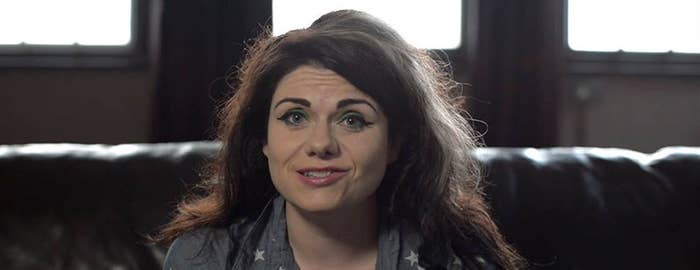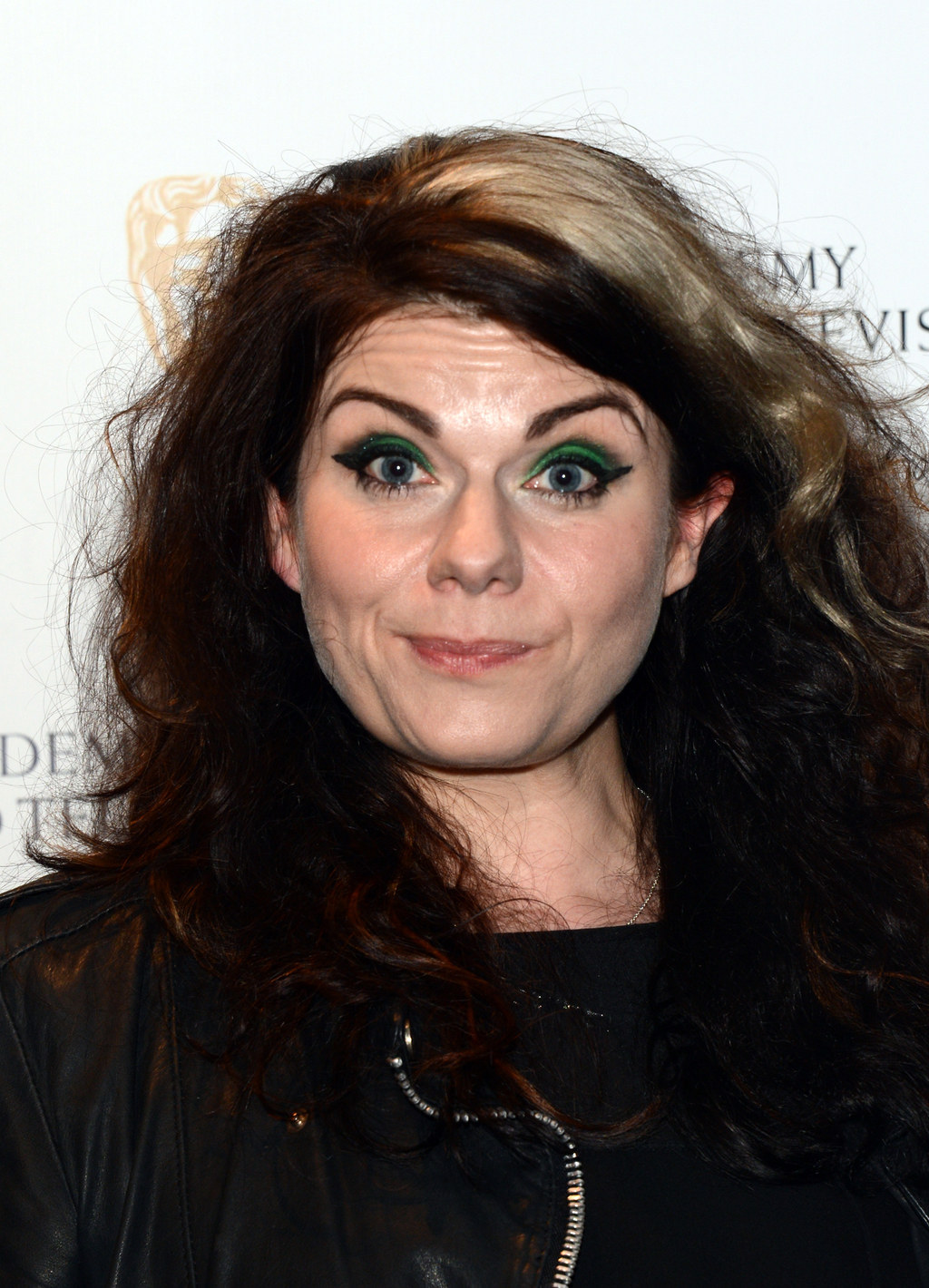
Caitlin Moran is a columnist for The Times of London and the author of two acclaimed books: the memoir-cum-manifesto How to Be a Woman, and the novel How to Build a Girl, which was recently optioned for a film adaptation. Moran writes about everything from obscure D-list British celebrities to the challenges of contemporary feminism with equal panache and vigor, and with an eye for the absurdities of life. Moran is a fount of opinions (her riff in How to Be a Woman about how to determine whether or not you are a feminist is priceless), comic routines, and embarrassing anecdotes. She is a comedian with the soul of an activist, or possibly an activist with a terrific comic repertoire: "I'll talk about anything, honestly. Seriously. It's shutting me up that you'll have a problem with."

How do you juggle writing honestly about yourself with any lingering sense of embarrassment about your past?
Caitlin Moran: Bill Hicks said you're born with a certain amount of drinks you can drink and drugs that you can take. You can either do them in one big go or eke them out slowly over your life. With drugs, I did them all in one fucking bunch by the time I was 24. And certainly with embarrassment, I was so perpetually mortified that whatever gland it is that makes mortification just burned out by the time I was 23. It just got overused, and then it died.
What are you proudest of?
CM: You're supposed to say give birth to your children, aren't you, but one of them was just brought out by a doctor and the other one just kinda fell out.
I haven't complained. I've tried to be jolly. I could have written a misery memoir and instead I tried to make it funny. I never complained. Turning those tears into a chuckle. That, and finally learning how to back-comb my hair. Because I either thought you had hair that grew vertically out of your head, like the cast of Dynasty or Dallas, or that was it.
Those are two very impressive accomplishments.
CM: Thank you.
Do friendships become more or less important with age?
CM: I've got more friends than I've ever had in my life at the age of 39 — although given that I didn't have any friends until the age of 27, it doesn't say much — because I found the internet. For me, and I suspect a lot of socially awkward people, dealing with people face-to-face seems really traumatic. Particularly if you have massive sweating issues, and particularly if on top of that you have quite smelly sweat that smells like onion soup.
Does the internet have a problem with politeness?
CM: I read something once that when you're online, your inhibitions are lowered to the state where you've had three drinks. Once you basically know that the entire internet is slightly drunk, it all makes a lot more sense, and you deport yourself accordingly.
Do you have a place or time that belongs to you?
CM: I can only work between the hours of 8:30 and 4:30, because that's when the kids are at school. So I get to do all my work and have all of my fun in that time, which means just sitting on a chair, typing, alternately clicking between writing a column and being on Twitter, and smoking as many cigarettes as I can before my lungs give out.
Are there subjects that are off-limits, either in your writing or at a dinner party?
CM: Whenever I see a taboo, I just think that's something we need to drag screaming out into the light and discuss. Because taboos are where our fears live, and taboos are the things that keep us tiny. Particularly for women. All the things that are taboo are the things that are not normal, and all the things that are not normal are the things that are exclusively about physically being a woman. So once you've got a big feminist and political justification for talking about how you went round to Benedict Cumberbatch's house and did period all over his sofa, then there's no reason not to tell that anecdote in the middle of a dinner party.
Is there anything that can disqualify you from being a feminist?
CM: No. When you say you're not a feminist, if feminism hadn't existed, and you didn't live in a feminist world, you wouldn't be saying that, because you'd be too busy scrubbing out the toilets in back while cooking up your husband's tea and dying in childbirth at the age of 34. The problem that we have is thinking there's only one kind of feminist, and that she's politically correct and right on at all times, wears flat shoes, doesn't wear makeup, probably doesn't have sex, is very angry, wears dungarees, is a vegetarian.

What would you like to do more of?
CM: Pelvic floor exercises. They just make me angry. The world's not ready for me to have a strong pelvic floor.
What would you like to do less of?
CM: I wish I could give up smoking, but it does taste so delicious. I wish I could learn that just three drinks is enough, but I have not learned that. I wish I could learn that three sentences is enough in a conversation. I'm drunk on words, I'm drunk on booze, and I can't stop smoking. So excess, I guess.
What's the best advice you've ever received?
CM: From my husband, when I was 17, and I'd first met him. We were just friends and he sort of observed me for a couple of weeks. And he went, "What's your plan here? What are you doing?" And I went, "I want to be as legendary as possible at all times." And he went, "Looks kind of exhausting, love. Why don't you just try being nice instead?" That was the best bit of advice. You don't need to be legendary all the time. You can just be legendary for 10 minutes a day.
What advice would you give to a young woman who came to hear you speak?
CM: Well, I always give three pieces of advice to all the teenage girls when I do my talks: long country walks — it's important to get some fresh air in your lungs, and be in contact with your body; masturbation — it takes the edge off, it'll get you through; and the revolution — believing in changing the world.
Because when you talk to a young teenage girl, they're just full of self-loathing. The reason they feel self-loathing is they don't feel normal. It is a world that has not been built for them. It's been built for men, and that's why they feel bad.
And for young men?
CM: As soon as they passed their mid-twenties, I'd probably be hitting on them. That would be the main difference. And if they were younger, I'd just see if they could get their older brothers and bring them along.
Life or art?
CM: If you do it properly, life is art, really. The two feed into each other. That is the kind of thing you do say when you're pissed at 4 o'clock in the morning.
***
Saul Austerlitz is the author of "Sitcom: A History in 24 Episodes from I Love Lucy to Community.
